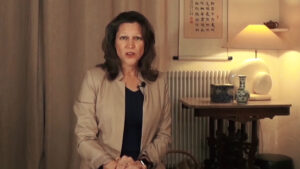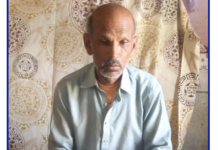Witney, England (ANS) – Covid-19 is fuelling a growing, hidden, “shadow pandemic” of gender-based violence, abduction and trafficking, directed towards Christian women and girls around the world, according to Open Doors.
This is one of the findings of a new report commissioned by the Christian persecution charity.

The “Same Faith, Different Persecution: WWR 2021 GSRP (Gender-Specific Religious Persecution) Report”, published ahead of International Women’s Day, states: “The Covid-19 pandemic has made the vulnerable even more vulnerable. They face persecution and opposition in lockdown, from within their families and communities – hostile to their faith”.
On top of this, states and militants have exploited the current situation with Covid, “weaponising women’s bodies to inflict harm on their minority Christian communities and limit growth of the church.”
The report looks at the nature and extent of gender-specific religious persecution towards both women and men over 12 months between October 2019 – September 2020. It focuses largely on the 50 countries highlighted in Open Doors’ annual World Watch List, where Christians face the worst persecution and oppression.
Among the key findings for women are:
- A major increase in, largely hidden, psychological and physical violence towards Christian convert women. According to the report, “vulnerable converts are at greater risk when they’re locked inside in confinement with their families who may abuse them for leaving the family’s or community’s religion to convert to Christianity”.
- A significant spread in trafficking of women and girls, forcing them into marriages or sexual slavery. In Gulf states, for instance, “lockdowns have reduced the number of people on the streets, making it both easier to target Christian women and girls, and harder to recover them”.
- A continued rise in reports of rape and other sexual violence. One unnamed persecution worker in the Central African Republic says: “This violence is a persecution weapon, a way of making Christian women vulnerable and also traumatising the community.”
Among the major forms of persecution for men are:
- Christian men facing more extreme physical harm or even death. Church leaders are especially targeted “as examples to show other Christians the treatment they can expect”.
- Economic harassment or imprisonment. By limiting their ability to provide, the entire family is rendered more vulnerable.
- Military/militia conscription. For men, forced conscription into the military or militias rose by 40 per cent, forced into service against their consciences.
Although the pressure points faced by men and women differ, the aims are often the same, according to the report.
“The very notion of family is, by implication, under attack. Persecutors are deliberately taking advantage of what the religious community holds to as a holy institution and an intimate relational act. Sexual violence, trafficking and forced marriage are being used even more widely to weaponise women’s bodies to inflict harm on their minority Christian communities and limit growth of the church”.
While, for males, “removing or limiting [their] ability to provide for their family weakens their dependent family and leaves them vulnerable, as well as shames the man/boy who is unable to provide.”
Perpetrators of the forms of gender-specific religious persecution vary from region to region. Looking at trafficking and sexual slavery:
- In the Middle East, North and Sub-Saharan Africa, extremist groups such as Boko Haram, use “ideologically motivated grooming”, forced marriage and kidnapping as a tool to Islamise girls and young women and deplete the beleaguered Christian community.
- Across parts of Asia, girls from poor Christian communities are singled out and trafficked to China for arranged marriages, where sex-selective abortion has led to a shortage of young women.
- Criminal gangs in Latin America: “In Colombia drug cartel leaders threaten to kill Christian families if they refuse to give up their daughters.” This acts as way of silencing churches and church leaders who are challenging the effective rule of these gangs over their villages.
Dismantling persecution: the way forward
The report highlights two key responses the authors believe can make a difference to the persecution.
- Local faith actors can lessen the impact of the targeted abuse. According to the authors, victims of gender-based religious persecution can be damaged by “a sense of unshakeable shame”. Churches and Christians need to counter this, teaching about “the unchanging worth, of both men and women”.
- Governments and policymakers need to acknowledge the faith factor.A person’s faith is one of the reasons they could be targeted in conflict situations – especially when combined with their gender.
Regarding this second point co-author Helene Fisher says, “It’s time that the faith factor is acknowledged. While race and gender are acknowledged as vulnerabilities in conflict zones, a person’s faith, generally is not.
“On International Women’s Day, we need policy-makers to understand the opposition Christian women around the world face, as they attempt to peacefully live out their chosen faith.”






